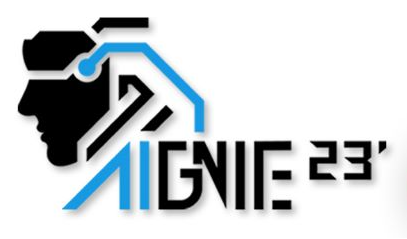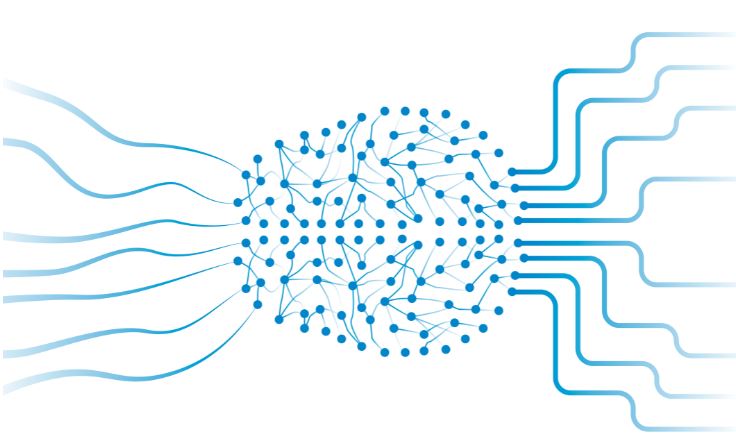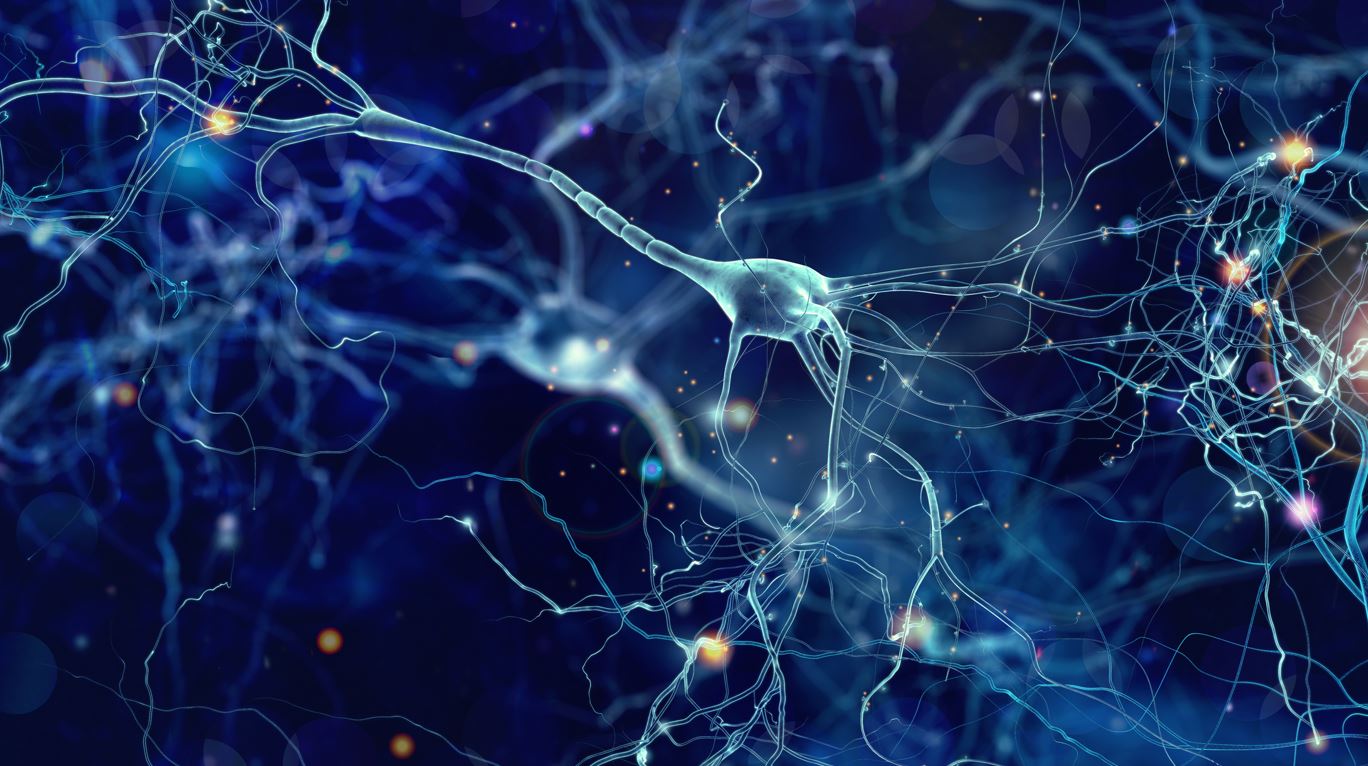| |
In Memoriam: Michio Sugeno
By Kazuo Tanaka
Dr. Michio Sugeno (Professor Emeritus, Tokyo Institute of Technology), 83, passed away on Wednesday, 9 August 2023, after a short battle with a brain tumor. Dr. Michio Sugeno, known to all of you, has left many milestones in the field of fuzzy theory and applications that I do not need to mention. His profound contributions, ranging from fuzzy measure/Sugeno integral to fuzzy control and computing with words, have had a lasting influence on generations of researchers.
Dr. Michio Sugeno received the B.Sc. degree from the Department of Physics, University of Tokyo, Tokyo, Japan, in 1962. He was with the company for three years and then with the Tokyo Institute of Technology, Tokyo, Japan, as a Research Associate, an Associate Professor, and a Professor from 1965 to 2000. After retiring from the Tokyo Institute of Technology, he was a Laboratory Head with the Brain Science Institute, RIKEN, from 2000 to 2005 and then as a Distinguished Visiting Professor with the Doshisha University from 2005 to 2010. Finally, he was an Emeritus Researcher with the European Centre for Soft Computing, Spain, from 2010 to 2015.
Dr. Michio Sugeno was the President of the Japan Society for Fuzzy Theory and Systems from 1991 to 1993, and also the President of the International Fuzzy Systems Association from 1997 to 1999. He is the first recipient of the IEEE CIS Pioneer Award in Fuzzy Systems with Zadeh in 2000. He was the recipient of the 2010 IEEE Frank Rosenblatt Award. He was also the recipient of the IEEE International Conference on Systems, Man, and Cybernetics 2017 Lotfi A. Zadeh Pioneer Award.
Thus, he achieved many theoretical and technical accomplishments and led the fuzzy community as a distinguished pioneer through his excellent studies. As one of his former Ph.D. students, I was fortunate to learn about his belief and passion for research through his thought-provoking advice.
His contribution and leadership to the fuzzy community have been invaluable and we will miss our great leader very much.
|
| |
|
| |
IEEE CIS Adcom Election
CIS will launch the Annual Election on 4 October to elect the following positions:
Five ADCOM Members-at-Large (2024-2026)
One ADCOM Member-at-Large (2024-2025) - to fill vacancy
The CIS Nominations Committee has followed the process outlined in our governing documents and has selected the candidates for your consideration. Their biography and position statements are available for you to review in preparation for the election by visiting the IEEE CIS Election page.
|
| |
|
| |
Call for Associate Editors for the IEEE TEVC
Please note that a few new positions will become available for joining the Editorial Board of the IEEE Transactions on Evolutionary Computation (TEVC). Candidates interested in applying must submit via email, in a single PDF file, to the Editor-in-Chief of TEVC (Prof. Carlos A. Coello Coello at [email protected]) the following information:
- A detailed CV in English. It's particularly important that you clearly mark your journal publications related to evolutionary computation. Also, please provide details of your academic/industrial credentials as well as your affiliation, including your current position. It is desirable that you also provide an institutional webpage whenever possible.
- Publications in TEVC (particularly in the last 5 years). Please provide as much detail as possible.
- Special issues at TEVC and/or Special Sessions that you had organized at the IEEE Congress on Evolutionary Computation (CEC). Provide as much detail as possible including the names of your co-organizers/guest co-editors as well as the number of papers submitted and accepted.
- Are you an IEEE and/or CIS member? If so, what is your status (i.e., Member, Senior Member, Fellow)?
-
From 4 to 8 areas of expertise within evolutionary computation in which you could handle submissions (please indicate relevant publications from your CV in each of the areas selected). Please note that we are particularly interested in specialists in the following topics: artificial immune systems, theoretical aspects of evolutionary computation, ant colony optimization, parallelism, cryptography, evolvable hardware.
- Prior experience as a reviewer for TEVC. Have you reviewed papers for TEVC? If so, since what year or within what time period? Please provide as much detail as possible.
| Deadline for applying: |
15 October 2023 |
| Notifications: |
15 December 2023 |
Please note that all applications will be carefully reviewed considering several elements, including: prior editorial experience, topics of expertise, and publications record. Note however that all candidates who get pre-selected are subject to the approval of the Vicepresident for Publications and of the President of the IEEE Computational Intelligence Society. Female candidates and people with affiliations in industry and/or government are strongly encouraged to apply.
|
| |
|
| |
Call for IEEE CIS Organizing Distinguished Lectures
The IEEE CIS Distinguished Lecturer Program (DLP) aims at serving the Computational Intelligence community by providing stimulating lectures given by distinguished IEEE CIS professionals and scholars. It also aims at helping young researchers (masters and doctoral students) providing suggestions/guidance on their research problems as well as promoting computational intelligence tools and techniques among undergraduate students to make them interested in CIS fields of interest. Distinguished Lecturers present novel basic and/or applied research results in their CIS sub-field. Their lectures offer insights into the trends and challenges of their CIS sub-field and their vision for the given sub-field. In any given year, selected IEEE CIS Distinguished Lecturers (DLs) have a balanced representation of CIS sub-fields and include representatives from academia, industry and government while spanning different IEEE regions.
The program supports local CIS Chapters by enabling a major chapter event which can considerably improve a chapter’s visibility to their existing IEEE CIS members, other IEEE society members and the wider CIS community in their area. It is expected that DLP events actively seek to recruit new CIS professionals to both the CIS field and to IEEE CIS.
It should be noted that this program is NOT intended as a means to finance speakers for conferences/workshops or symposia.
Please visit Organizing Distinguished Lectures for more information.
|
| |
|
| |
First IEEE CIS Summer School in Sri Lanka

The inaugural 2023 IEEE Summer School on Computational Intelligence: Theory and Applications was successfully hosted by the IEEE Computational Intelligence Society Student Branch Chapter of the University of Jaffna on 12-14 July. This event, held at the University's Department of Computer Science, marked a significant milestone as the first summer school on computational intelligence in Sri Lanka's higher education landscape.
The program featured a meticulously designed structure with daily thematic focuses. Day 1 provided participants a solid foundational understanding of Artificial Intelligence, Machine Learning, and Deep Learning. Day 2 delved into the nuances of Natural Language Processing, highlighting language's role in intelligent systems. Day 3 illuminated the realms of IoT and Robotics, demonstrating how intelligent systems interact with the physical world. The itinerary balanced theoretical frameworks with hands-on training. Distinguished scholars from global institutions and renowned speakers from Sri Lankan state universities shared insights. Industry experts from 99x, H2O.ai, and SenzAgro Solutions contributed to practical training. The summer school attracted 81 students from diverse Sri Lankan institutions, supported by the University of Jaffna faculty, totaling 104 participants.
Prof. A. Ramanan, Advisor/IEEE-CIS-SBC-UoJ, secured a competitive grant from IEEE for the event, and WSO2's generous support added to its success. For more details visit the Summer School website.
|
| |
|
| |
2024 IEEE CIS Student Grand Competition on Computational Intelligence in Biomedicine and Healthcare

We welcome participants to present computational intelligence solutions for core issues in smart medicine, smart healthcare, and smart hospital including but not limited to personalized, predictive, preventive, and participatory medicine and healthcare solutions. In the preliminary contest, the judge committee will select 10 teams based on the uploaded proposals. In the final contest, the selected teams need to physically or virtually attend the 2024 IEEE World Congress on Computational Intelligence (WCCI) in Japan for real-time demonstration and presentation of their systems.
Prize per team:
- 1st Place Award: US$1,500 + Certificate
- 2nd Place Award: US$1,000 + Certificate
- 3rd Place Award: US$600 + Certificate
- Honorable Mention: Certificate
Website: https://sites.google.com/view/cishackathon
Submission Due: 31 October 2023
Preliminary Contest: 3 January 2024
Final Contest: 30 June 2024
|
| |
|
| |
Jack and Masters of all Trades: One-Pass Learning Sets of Model Sets From Large Pre-Trained Models

For deep learning, size is power. Massive neural nets trained on broad data for a spectrum of tasks are at the forefront of artificial intelligence. These large pre-trained models or “Jacks of All Trades” (JATs), when fine-tuned for downstream tasks, are gaining importance in driving deep learning advancements. However, environments with tight resource constraints, changing objectives and intentions, or varied task requirements, could limit the real-world utility of a singular JAT. Hence, in tandem with current trends towards building increasingly large JATs, this paper conducts an initial exploration into concepts underlying the creation of a diverse set of compact machine learning model sets. Read more
IEEE Computational Intelligence Magazine, August 2023
|
| |
|
| |
Observer-Based Control for a New Stochastic Maximum Power Point Tracking for Photovoltaic Systems With Networked Control System

This study discusses the new stochastic maximum power point tracking control approach toward the photovoltaic cells (PCs). A PC generator is isolated from the grid, resulting in a direct current microgrid that can provide changing loads. In the course of the nonlinear systems through the time-varying delays, we proposed networked control systems beneath an event-triggered approach basically in the fuzzy system. In this scenario, we look at how random, variable loads impact the PC generator's stability and efficiency. The basic premise of this article is to load changes and the value matching to a Markov chain. PC generators are complicated nonlinear systems that pose a modeling problem. Read more
IEEE Transactions on Fuzzy Systems, June 2023
|
| |
|
| |
Building Trustworthy AI Solutions: A Case for Practical Solutions for Small Businesses

Building trustworthy artificial intelligence (AI) solutions, whether in academia or industry, must take into consideration a number of dimensions including legal, social, ethical, public opinion, and environmental aspects. A plethora of guidelines, principles, and toolkits have been published globally, but have seen limited grassroots implementation, especially among small- and medium-sized enterprises (SMEs), mainly due to the lack of knowledge, skills, and resources. In this article, we report on qualitative SME consultations over two events to establish their understanding of both data and AI ethical principles and to identify the key barriers SMEs face in their adoption of ethical AI approaches. Read more
IEEE Transactions on on Artificial Intelligence August 2023
|
| |
|
| |
Manifold Interpolation for Large-Scale Multiobjective Optimization via Generative Adversarial Networks

Large-scale multiobjective optimization problems (LSMOPs) are characterized as optimization problems involving hundreds or even thousands of decision variables and multiple conflicting objectives. To solve LSMOPs, some algorithms designed a variety of strategies to track Pareto-optimal solutions (POSs) by assuming that the distribution of POSs follows a low-dimensional manifold. However, traditional genetic operators for solving LSMOPs have some deficiencies in dealing with the manifold, which often results in poor diversity, local optima, and inefficient searches. In this work, a generative adversarial network (GAN)-based manifold interpolation framework is proposed to learn the manifold and generate high-quality solutions on the manifold, thereby improving the optimization performance of evolutionary algorithms. Read more
IEEE Transactions on Neural Networks and Learning Systems, August 2023
|
| |
|
| |
Automated Design of Metaheuristics Using Reinforcement Learning Within a Novel General Search Framework

Metaheuristic algorithms have been investigated intensively to address highly complex combinatorial optimization problems. However, most metaheuristic algorithms have been designed manually by researchers of different expertise without a consistent framework. This article proposes a general search framework (GSF) to formulate in a unified way a range of different metaheuristics. With generic algorithmic components, including selection heuristics and evolution operators, the unified GSF aims to serve as the basis of analyzing algorithmic components for automated algorithm design. With the established new GSF, two reinforcement learning (RL)-based methods, deep Q -network based and proximal policy optimization-based methods, have been developed to automatically design a new general population-based algorithm. Read more
IEEE Transactions on Evolutionary Computation, August 2023
|
| |
|
| |
Neural Encoding and Decoding With a Flow-Based Invertible Generative Model

Recent studies on visual neural encoding and decoding have made significant progress, benefiting from the latest advances in deep neural networks having powerful representations. However, two challenges remain. First, the current decoding algorithms based on deep generative models always struggle with information losses, which may cause blurry reconstruction. Second, most studies model the neural encoding and decoding processes separately, neglecting the inherent dual relationship between the two tasks. In this article, we propose a novel neural encoding and decoding method with a two-stage flow-based invertible generative (FLIG) model to tackle the above issues. First, a convolutional autoencoder (CAE) is trained to bridge the stimuli space and the feature space. Read more
IEEE Transactions on Cognitive and Developmental Systems, June 2023
|
| |
|
| |
Reinforcement Learning on Graphs: A Survey

Graph mining tasks arise from many different application domains, including social networks, biological networks, transportation, and E-commerce, which have been receiving great attention from the theoretical and algorithmic design communities in recent years, and there has been some pioneering work employing the research-rich Reinforcement Learning (RL) techniques to address graph mining tasks. However, these fusion works are dispersed in different research domains, which makes them difficult to compare. In this survey, we provide a comprehensive overview of these fusion works and generalize these works to Graph Reinforcement Learning (GRL) as a unified formulation. We further discuss the applications of GRL methods across various domains, and simultaneously propose the key challenges and advantages of integrating graph mining and RL methods. Read more
IEEE Transactions on on Emerging Topics in Computational Intelligence, June 2023
|
| |
|
| |
Wor(l)d-GAN: Toward Natural-Language-Based PCG in Minecraft

This article presents Wor(l)d-GAN, a method to perform data-driven procedural content generation via machine learning in Minecraft from a single example. Based on a 3-D generative adversarial network (GAN) architecture, we are able to create arbitrarily sized world snippets from a given sample. Our method applies dense representations used in natural language processing in two ways. First, we propose block2vec representations based on word2vec. Second, we use the pretrained large language model bidirectional encoder representations from transformers (BERT) to generate representations directly from the token names. These representations make Wor(l)d-GAN independent of the number of different blocks, which can vary a lot in Minecraft , and enable the generation of larger levels. Read more
IEEE Transactions on Games, June 2023
|
| |
|
| |
2024 IEEE Conference on Artificial Intelligence

The 2024 IEEE Conference on Artificial Intelligence (IEEE CAI 2024) is the 2nd edition of the new conference and exhibition with an emphasis on the applications of AI and key AI verticals that impact industrial technology applications and innovations.
IEEE CAI 2024 will showcase those latest developments in AI research and applications with the potential for a profound impact on industry and technological advancements and innovations. The conference programme offers an unprecedented experience with prominent AI speakers delivering keynote presentations, engaging workshops, technical and information sessions featuring contemporary AI topics, and insightful forward-looking panels around important sectors.
Come and join IEEE CAI 2024 for an experience that will prepare you to learn about new research and breakthroughs in AI, gain a valuable insight into new start-ups and leading AI establishments, grow your network and get inspired by the brightest minds working in this multi-faceted field.
To know more about visit the IEEE CAI 2024 website.
|
| |
|
| |
IEEE Life Members Conference
The IEEE Life Member Conference will take place from 14-16 April 2024 at the Hyatt Regency in Austin, TX. The conference aims to engage and strengthen the involvement of IEEE's 38,000 Life Members in shaping the future. The event will focus on emerging technologies, applications for aging populations, and member contributions. Renowned speakers such as Rodney Brooks, John McDonald, and Whurley are confirmed, with more speakers to be announced. Life Members, Senior Members, influencers, innovators, technical professionals, and members of the STEM community are encouraged to attend. Registration will be limited, so early registration is recommended.
Further details about the conference can be found at Introduction to Life Members Conference and IEEE Life Members Conference.
|
| |
|
| |
Conference Calendar
By Marley Vellasco, Pontifícia Universidade Católica do Rio de Janeiro
Liyan Song, Southern University of Science and Technology, China
* Denotes a CIS-Sponsored Conference
∆ Denotes a CIS Technical Co-Sponsored Conference
∆ 18th International Workshop on Semantic and Social Media Adaptation and Personalization (SMAP 2023)
25-26 September 2023
Place: Limassol, Cyprus
General Chair: Nicolas Tsapatsoulis and Jahna Otterbacher
Website: https://cyprusconferences.org/smap2023/
* 2023 IEEE International Conference on Data Science and Advanced Analytics (IEEE DSAA 2023)
9-13 October 2023
Place: Thessaloniki, Greece
General Chair: Yannis Manolopoulos and Zhihua Zhou
Website: https://conferences.sigappfr.org/dsaa2023/
∆ The 5th International Conference on Process Mining (ICPM 2023)
23-27 October 2023
Place: Rome, Italy
General Chair: Claudio Di Ciccio and Andrea Marelli
Website: https://icpmconference.org/2023/
* IEEE Latin American Conference on Computational Intelligence (IEEE LA-CCI 2023)
29 October - 1 November 2023
Place: Porto de Galinhas, Brazil --> approved change to Recife, PE, Brazil
General Chairs: Diego Pinheiro and Rodrigo Monteiro
Website: https://netuh.github.io/la-cci-home/
∆ International Conference on Behavioural and Social Computing (BESC 2023)
30 October – 1 November 2023
Place: Larnaca, Cyprus (University of Cyprus)
General Chairs: George A. Papadopoulos
Website: http://besc-conf.org/2023/
∆ The 7th Asian Conference on Artificial Intelligence Technology (ACAIT 2023)
3-5 November 2023
Place: Jiaxing, China
General Chairs: Qionghai Dai, Cesare Alippi, and Jong-Hwan Kim
Website: https://www.acaitconf.com/
∆ The 5th International Conference on New Trends in Computational Intelligence (NTCI 2023)
3-5 November 2023
Place: Qingdao, China
General Chairs: Marios M. Polycarpou, and Jian Wang
Website: http://ntcien2023.upc.edu.cn/
* 2023 IEEE International Conference on Development and Learning (ICDL 2023)
9-11 November 2023
Place: Macau, China
General Chair: Zhijun Li
Website: http://www.icdl-2023.org/
* 2023 IEEE Symposium Series on Computational Intelligence (IEEE SSCI 2023)
6-8 December 2023
Place: Mexico City, Mexico
General Chair: Wen Yu
Website: https://attend.ieee.org/ssci-2023/
|
| |
|
| |
IEEE CIS sponsors and co-sponsors a number of conferences across the globe.
|
|
|
| |
|
|
| |
 Editor Bing Xue
Victoria University of Wellington, New Zealand
Editor Bing Xue
Victoria University of Wellington, New Zealand
Email: [email protected]
|
| |
|
| |
{{my.Comm Preferences:default=edit me}}
|
| |
|
|
|